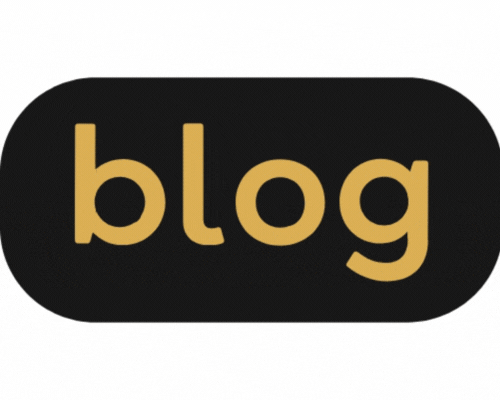Book Review: Comrade Ambassador - Whitlam's Beijing Envoy by Stephen FitzGerald
- Terry Purcell

- Jul 24, 2024
- 4 min read
I was fortunate recently to come across a second-hand copy of Comrade Ambassador. Despite my best efforts to keep up to date with books dealing with Gough Whitlam and his achievements, I missed the publication of Stephen FitzGerald’s 2015 memoir.

Comrade Ambassador is Stephen FitzGerald’s account of his appointment in early 1973 as Australia’s first ambassador to Communist China, and it is a fascinating story. Especially when we contrast his experience with the current Australian government’s attempts to restore relations after the disastrous years under the conservatives.
FitzGerald’s path to this role as ambassador began in the early 1960 when he decided to study the Chinese language – not an easy task when there are no university courses available (astonishing when you think of the long history of Chinese involvement in Australia). With few options open to him, FitzGerald is forced to participate in a Chinese language course run at an air force base at Point Cook outside Melbourne. This was followed up by his attending the Language School of Hong Kong University to learn Cantonese as Australians were not permitted to attend classes in Beijing.
When in January 1967 Gough Whitlam becomes leader of the Labor Party, FitzGerald is invited to meet him over lunch. The two men hit it off and Whitlam asks him to write a policy paper for him on Australia and Asia. FitzGerald readily accepts this challenge and drafts the policy document. This leads to him becoming an informal adviser to Whitlam.
By 1971 Whitlam realises that the Gorton and McMahon governments have no interest in opening diplomatic relations with China, and that he needs to initiate contact with the Chinese government himself. FitzGerald is invited to join Whitlam’s team with the goal of meeting with Premier Zhou Enlai, who had long been an advocate of better relations with the West. It is Premier Zhou who will precipitate Nixon’s history making visit two years later.
A highlight of the book is FitzGerald’s account of the China trip, especially Whitlam’s face-to-face discussions with China’s most senior leaders, starting with China’s acting Foreign Minister Jing Pengfei. FitzGerald records Whitlam’s anxiety regarding this preliminary meeting. Whitlam’s goal is to meet with Premier Zhou Enlai, and yet he knows he must carefully navigate his way through the hierarchy while keeping some of the most pressing issues close to his chest. Whitlam is realistic about a range of historic Asian issues, including justifiable grievances, that need to be discussed in this, and following meetings, not the least Australia’s role in the Vietnam War. Much to Whitlam’s credit, the first meeting finishes on a positive note with a formal dinner.
In FitzGerald’s account, the next day starts with a meeting with China’s trade minister, after which they return to their hotel for lunch, where they are advised of a function planned for that evening. FitzGerald recalls the tension rising in the Australian camp as time ticked away with no news forthcoming of a meeting with Premier Zhou Enlai, the whole purpose of their visit. There is no small relief when after an anxious wait they are informed that Premier Zhou Enlai will meet with them. When they are handed the schedule, they see they have been afforded a much longer meeting with the top man than they had dare hope for. As FitzGerald makes clear, this is an important step in opening formal relations between the two countries. The meeting covers many issues including Australia’s relations with the US which Whitlam handles deftly.
Comrade Ambassador: Whitlam's Beijing Envoy by Stephen FitzGerald is a great read in its own right, but for me, with my special interest in Gough Whitlam’s achievements, the chapters detailing the very important steps taken by Whitlam, initially when in opposition, and later when in government, to normalise relations between the two countries, which culminated in relations between Australia and China being formalised in 1973, were a definite highlight.
Read the eBook.
Publisher’s Book Description:
'Comrade Ambassador reveals how Australia from the 1960s decided to engage with Asia and change for all time how we saw our role in the world.' Bob Carr
Modern Australia was in part defined by its early embrace of China—a turning from the White Australia Policy of the 1950s to the country's acceptance of Asian immigration and engagement with regional neighbours. It saw the far-sighted establishment of an embassy in Beijing in the 1970s by Gough Whitlam, headed by Stephen FitzGerald. Here, FitzGerald's story as diplomat, China scholar, adviser to Gough Whitlam, first ambassador to China under prime ministers Whitlam and Malcolm Fraser, is interwoven with the wider one of this dramatic moment in Australia's history. Comrade Ambassador also highlights the challenge Australia faces in managing itself into an Asian future.
About the Author
Stephen FitzGerald began his career as a diplomat, became an academic, was China adviser to Gough Whitlam, and from 1973 to 1976 was Australia's first ambassador to the People's Republic of China. In 1980 he established the first private consultancy for Australian business and government in China. He is currently a board member of the independent public policy initiative, China Matters, and an honorary fellow at the China Studies Centre at Sydney University.


Comments